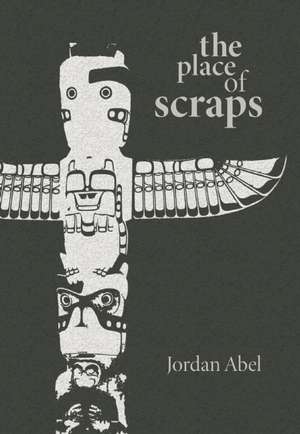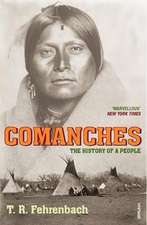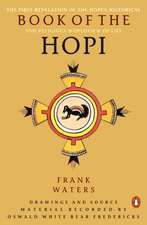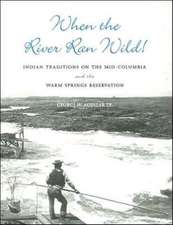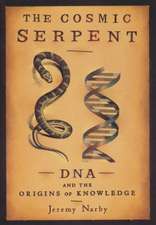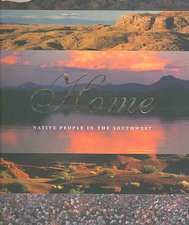The Place of Scraps
Autor Jordan Abelen Limba Engleză Paperback – 18 noi 2013
The Place of Scraps revolves around Marius Barbeau, an early-twentieth-century ethnographer, who studied many of the First Nations cultures in the Pacific Northwest, including Jordan Abel’s ancestral Nisga’a Nation. Barbeau, in keeping with the popular thinking of the time, believed First Nations cultures were about to disappear completely, and that it was up to him to preserve what was left of these dying cultures while he could. Unfortunately, his methods of preserving First Nations cultures included purchasing totem poles and potlatch items from struggling communities in order to sell them to museums. While Barbeau strove to protect First Nations cultures from vanishing, he ended up playing an active role in dismantling the very same cultures he tried to save.
Drawing inspiration from Barbeau’s canonical book Totem Poles, Jordan Abel explores the complicated relationship between First Nations cultures and ethnography. His poems simultaneously illuminate Barbeau’s intentions and navigate the repercussions of the anthropologist’s actions.
Through the use of erasure techniques, Abel carves out new understandings of Barbeau’s writing – each layer reveals a fresh perspective, each word takes on a different connotation, each letter plays a different role, and each punctuation mark rises to the surface in an unexpected way. As Abel writes his way ever deeper into Barbeau’s words, he begins to understand that he is much more connected to Barbeau than he originally suspected.
Drawing inspiration from Barbeau’s canonical book Totem Poles, Jordan Abel explores the complicated relationship between First Nations cultures and ethnography. His poems simultaneously illuminate Barbeau’s intentions and navigate the repercussions of the anthropologist’s actions.
Through the use of erasure techniques, Abel carves out new understandings of Barbeau’s writing – each layer reveals a fresh perspective, each word takes on a different connotation, each letter plays a different role, and each punctuation mark rises to the surface in an unexpected way. As Abel writes his way ever deeper into Barbeau’s words, he begins to understand that he is much more connected to Barbeau than he originally suspected.
Preț: 140.00 lei
Nou
Puncte Express: 210
Preț estimativ în valută:
26.80€ • 29.12$ • 22.52£
26.80€ • 29.12$ • 22.52£
Carte disponibilă
Livrare economică 31 martie-14 aprilie
Preluare comenzi: 021 569.72.76
Specificații
ISBN-13: 9780889227880
ISBN-10: 0889227888
Pagini: 272
Dimensiuni: 168 x 229 x 18 mm
Greutate: 0.48 kg
Editura: Talon Books
Colecția Talonbooks
Locul publicării:Canada
ISBN-10: 0889227888
Pagini: 272
Dimensiuni: 168 x 229 x 18 mm
Greutate: 0.48 kg
Editura: Talon Books
Colecția Talonbooks
Locul publicării:Canada
Recenzii
"The Place of Scraps by Jordan Abel is a brave, creative, perceptive text that operates by breaking, exposing, and inverting the assumptions of poetry and place, piece-by-piece. This is art of the concept, used to unmake language so that language may live." – Wayde Compton
"Jordan Abel's [The] Place of Scraps is an anthropology of anthropology, done as only a[n Aboriginal / Indigenous] poet could do."
– Ray Hsu, author of Cold Sleep Permanent Afternoon
"The Place of Scraps demonstrates the infinite expressiveness of experimental writing, in particular concrete poetry; Abel’s textual erasures and collisions manage, all at once, to viscerally enact losses, give voice to silenced histories, make plain the bonds between curation and colonization, reveal cascading ironies, and amplify the commentary of mosquitos. Abel is a master carver of the page."
– Susan Holbrook, author of Trillium nominated Joy Is So Exhausting
"With his breakout collection of visual poetry, Jordan Abel conjures the near impossible: a heartbreaking history lesson, both person and public, mixed with lyricism, intelligence, humour and cold-eyed facts. This narrative of the misguided, good-hearted Marius Barbeau and what he did with First Nations cultural icons will be a revelation for many. What Abel takes from language is what gives it form and strength: a more apt use of plunder verse I cannot imagine." – Carolyn Smart
"These astonishingly inventive poems reframe encounters with ethnology and memory by evoking both the anxiety of erasure and the prismatic potential of palimpsestic reading. Just as the huge totem pole travelling through the heart of the book is cut apart and pieced back together, The Place of Scraps reconfigures the contingencies involved with making sense of ancestry, preservation, and interpretation itself. Abel’s writing constantly dazzles and rewards with its linguistic playfulness and conceptual sophistication." – Adam Dickinson
"By taking Marius Barbeau's texts as both its theme and source, The Place of Scraps takes on the legacy of the potlatch, an event irresolvably suspended between dynamics of excess and loss, investment and destruction, gift and exchange, general and restricted economies. As Christopher Bracken has argued, the potlatch was, in some sense, paradoxically invented by the very Canadian laws that sought to destroy it, even as the goods exchanged in such ceremonies were often supplied by European-Canadians traders, even as indigenous arts flourished under the fur trade, and just as Barbeau's attempts to preserve cultures aided directly in their dissolution. In The Place of Scraps, all these debts of history are put back into play, with interest (in every sense of the term), as the excessive significations of language's material properties are recuperated, celebrated, and sacrificed in turn. With sustained attention, serious criticism, and generous respect, Jordan Abel has latched onto the extraordinary luck of lack." – Dr. Craig Dworkin
"English litters the sky, its typed letters eventually demolished into illegible insects that flit above archival photo-testimony to land/people. As Abel delves into the historical record with poetic precision, language is revealed to be uncanny rubble. Everything tilts with the pole, rendered into relationship. A surprising and necessary book of poetry, The Place of Scraps is as humbly unstoppable as the next breath you take in and release back out to the world." – Rita Wong
Notă biografică
Jordan Abel is a First Nations writer who lives in Vancouver. He holds a B.A. from the University of Alberta and a M.F.A. from the University of British Columbia. Jordan is an editor for Poetry Is Dead magazine and the former poetry editor for PRISM International. His work has been published in many journals and magazines across Canada, including CV2, The Capilano Review, Prairie Fire, dANDelion, Geist, ARC Poetry Magazine, Descant, Broken Pencil, OCW Magazine, filling Station, Grain, and Canadian Literature. In early 2013, Above/Ground Press published his chapbook Scientia.
Descriere
A conceptual poetry book that plays with the idea of historical First Nations' representation through visual and erasure poems.
